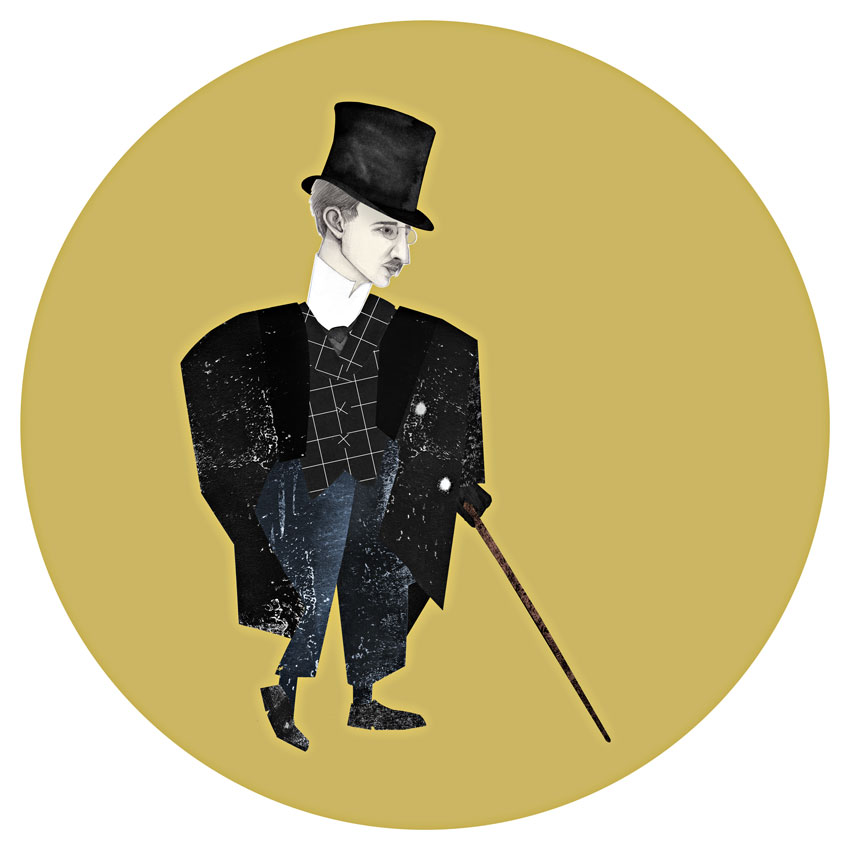From Cabalcor: An Extracted History. Published by Anvil Press in 2015. Sun Belt is an interdisciplinary arts group comprised of Rick Maddocks, Stephen Lyons, Carrie Walker, Dave Wilson, Jon Wood, Paul Rigby and Sandra Carvalho González. Its work incorporates music, fiction, painting, illustration, performance and photography.
Bianca Camarena’s Testimony, Cabalcor Truth Commission Hearings, Appendix VI.
We saw the dust before we saw the men. They came from the south, that’s what we were told. We’d been told many things that year. Rumours had spread through town about the corporation contracting out specialists of some kind and those rumours only got louder once the union came out of the shadows.
The first union folks, my uncles and the rest, they were brave but they weren’t stupid. So they set up their headquarters north of town, up in Fort Iquique. Yet that move was seen as a statement on account of all the people who were getting sick up there—indigenous people, mostly, people who didn’t even work at the plant. Women, children, old folks. There was a doctor there once, but he got forced out—by the company, not the locals. So the union’s Local No. 1 presence there drew its own kind of attention, whether the founding members meant it or not. There were those in the company, even day labourers, who accused us of being disloyal. Any sickness in the air or water, they said, was too easily blamed on the mines. They asked us why we were sleeping with the enemy. They asked us why we were so hell-bent on losing our jobs and threatening theirs.
The first time the windows of our headquarters were smashed in, it was exactly three o’clock in the afternoon on a Saturday. I remember looking up at the clock and the next thing I knew my table was covered in shards of glass. Somehow, there wasn’t a scratch on me. Not that time anyway. It wasn’t long before fights broke out on those quiet streets up in Fort Iquique. Some people said it was inevitable. I say it was inevitable because somebody made it so.
Like I said, we saw dust first and it came from the south, just not the far south like we’d imagined. The men who brought it wore sunglasses and moved in packs. They’d been living in the workers’ camp on the edge of Cabalcor, out beyond the Bald Ring. You just followed the trail behind Sandi’s and there you were. They lived in barracks, these dank prefab trailers with shared toilets and mold on the walls. Later they were housed in steel shipping containers too, dangerously overcrowded. You got your Texans, Croatians, Newfoundlanders, Portuguese, Welsh, Salvadorans, Dakotans, Mexicans. That’s just a small sample—they were from all over, all colours and creeds. Men who had no ties with this place, who came for money and left with money and who, in between, did anything for money.
The camp was more or less run by the cooks, who’d been there longer than anyone else. They could get you contraband anything. Drugs, girls, boys, guns. Real pieces of work, the cooks. As for your regular camp types, you knew them when you saw them. They had blistered lips and scabs and they’d usually be seen walking silently in groups of four or five, not giving a damn about the bylaw. Each of them dragged his past life behind him like some old skin that hadn’t been cast off. At first these men seemed resentful of the fact they were working for anyone; when asked to carry out any task at Cabalcor, their first response was usually “no.” Some of them brought their wives to the camp. There were more wife beatings per capita in the Cabalcor workers’ camp than in any place in North America during that time. Look it up.
No, I did not envy the lives of those women. That’s why I founded the Trauma Fund at Black Sands Local No. 1. And that’s probably another reason the men who brought the dust attacked Local No. 1 with such venom when they came back a second and third time.
It was a matter of months before we moved Local No. 1 down to the eye of the storm in Cabalcor, where we found your garden-variety intimidation and orchestrated chaos. We figured it wasn’t fair to the people of Fort Iquique for us to remain up there. They’d suffered enough in our eyes. The thing was, we failed to realize the depth of their fury toward the corporation. Thanks to the mines they’d lost their livelihood and their livelihood was the land and water. Local No. 1 offered them torch paper for that anger to catch fire—an institutional touchstone, if you like. And then, as soon as it was lit, we were gone. So, yes, there were some who felt we’d betrayed them. Betrayal upon betrayal. It’s one of my many regrets.
[Long pause]
But at the time we asked ourselves, why do they need other people’s problems visited upon them? Of course, we didn’t admit to ourselves that we’d been visiting our problems upon them ever since my grandfather arrived here. And we didn’t know they were going to suffer a whole lot more for a whole lot longer.
They fought though, more than anybody. We recall how the Fort Iquique Council pursued legal challenges long before the rest of us even dreamed of such a thing. And how they came down and blockaded Highway No. 3, I don’t know how many times. And how so many of them were dragged into that godforsaken detention camp—one of the reasons we’re gathering here this week. Who among us, all these years later, would have thought those same workers’ camp types would go on to form the backbone of the Cabalcor security forces, the prison camp personnel? Go on, hands up. We’d thought they’d gone away for good. But they came back for the worst.









